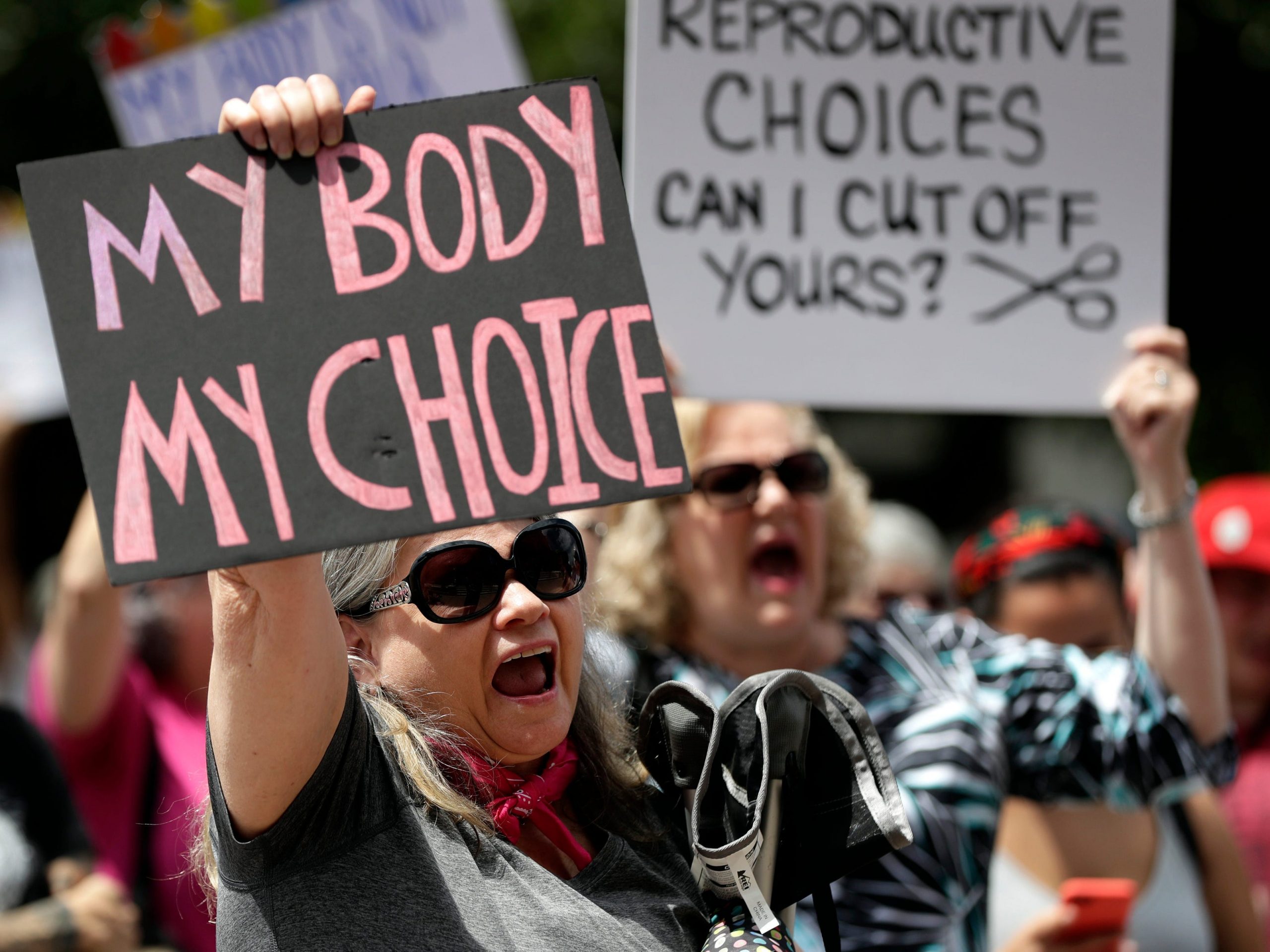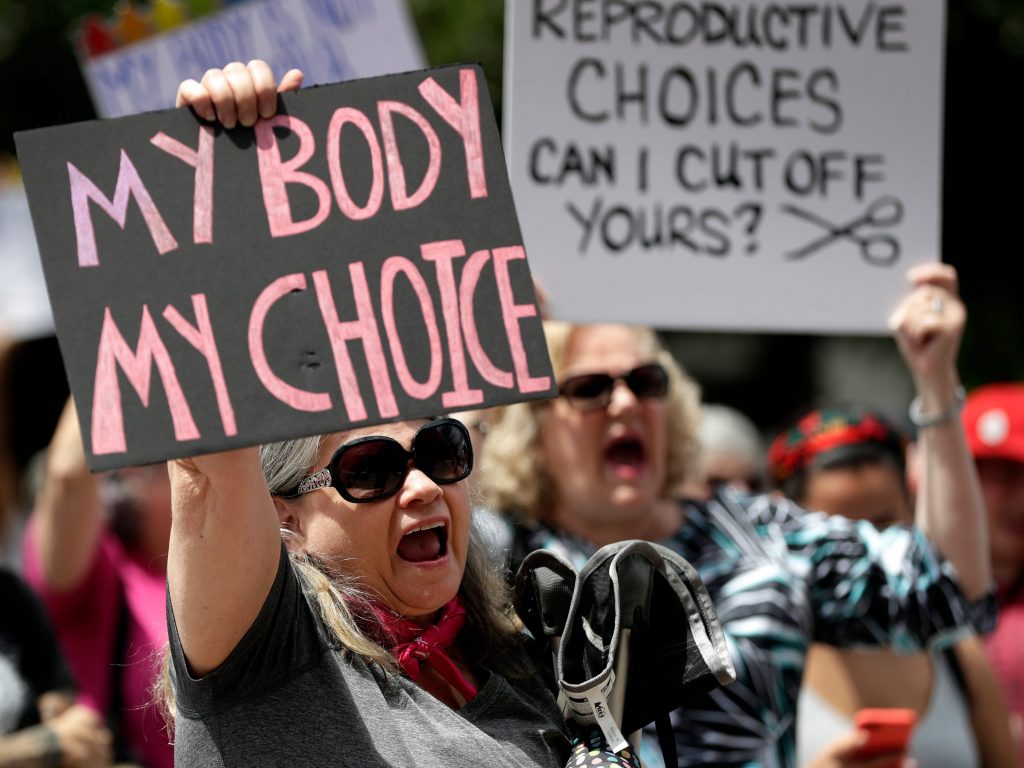
Eric Gay/AP
- The Supreme Court refused to block a restrictive new law in Texas that bans abortions after six weeks of pregnancy.
- Texas Gov. Greg Abbott signed the law, known as SB8, on May 19.
- The SCOTUS refused to block the law in a 5-4 ruling on September 1.
- Visit Insider's homepage for more stories.
The Supreme Court has refused to block a restrictive new law in Texas that bans abortions after six weeks, with no exception for rape or incest.
In a 5-4 vote, Justices Amy Coney Barrett, Brett M. Kavanaugh, Neil M. Gorsuch, Samuel A. Alito, Jr., and Clarence Thomas overruled the dissenting votes cast by Justices John G. Roberts, Jr., Stephen G. Breyer, Sonia Sotomayor, and Elena Kagan.
The law bans abortions after six weeks of pregnancy and is a "heartbeat" abortion ban that prohibits the termination of pregnancy once a fetal heartbeat is detected. However, the six-week mark is before most people even know that they are pregnant.
The law, SB8, was signed by Texas Gov. Greg Abbott on May 19.
Abortion clinics in Texas appealed to the Supreme Court on August 30 to step in and block the law from going into force, saying it would prevent "at least 85% of Texas abortion patients" from getting the care they need, and force clinics to shut down. The court did not address the emergency injunction and allowed the law to come into effect on September 1.
"Presented with an application to enjoin a flagrantly unconstitutional law engineered to prohibit women from exercising their constitutional rights and evade judicial scrutiny, a majority of Justices have opted to bury their heads in the sand," Justice Sonia Sotomayor wrote, dissenting to the law being allowed to take effect.
Sotomayor added that "the Court's failure to act rewards tactics designed to avoid judicial review and inflicts significant harm on the applicants and on women seeking abortions in Texas."
The ruling is being referred to as a "soft" overturn of Roe V. Wade, the landmark 1973 Supreme Court case that made abortion legal in the US. The Center for Reproductive Rights estimates that 34 states could cease to protect abortion rights if Roe is overturned.
State-level authorities continue to chip away at abortion rights despite a 2016 Pew Research study that found around 69% of Americans don't want Roe overturned.
